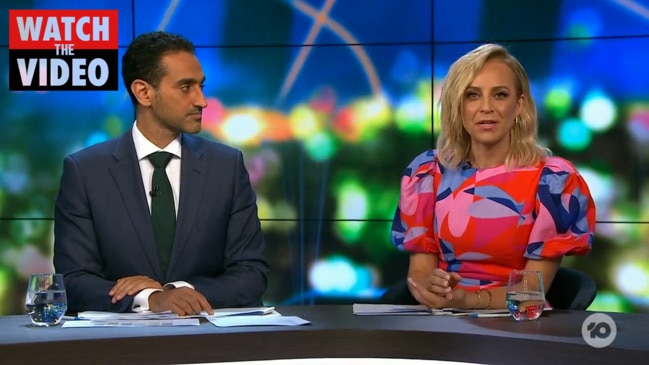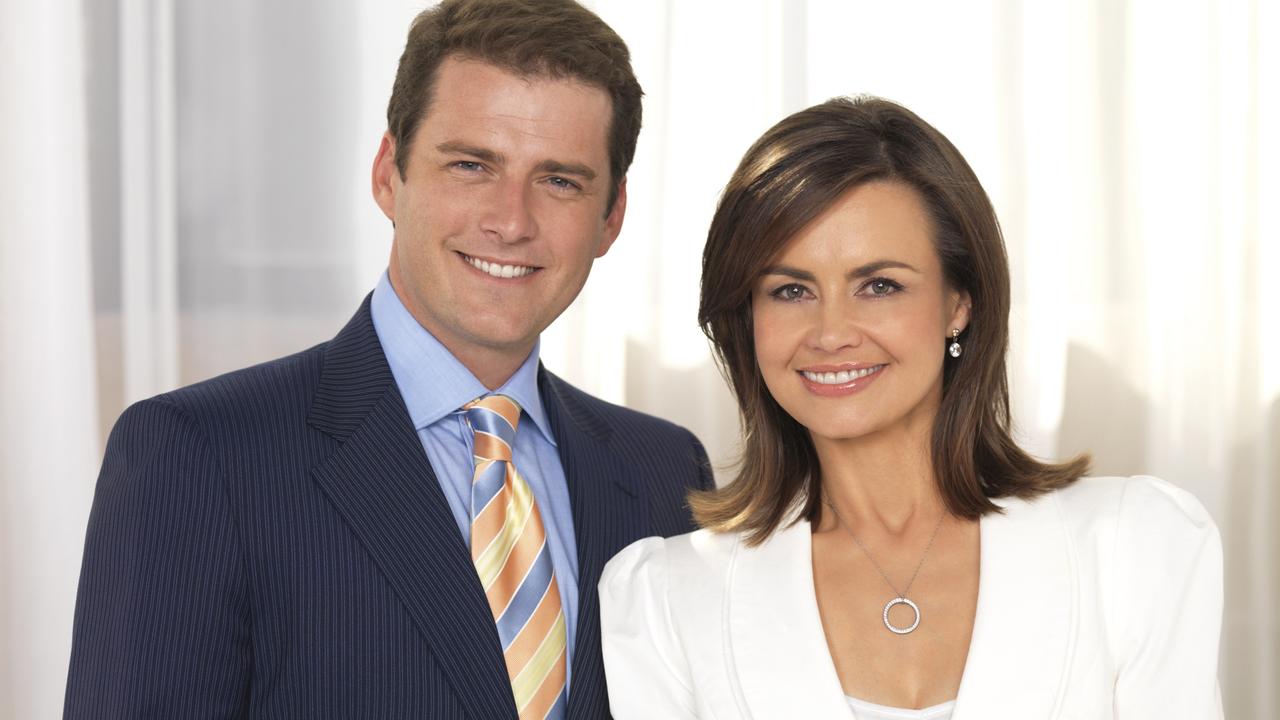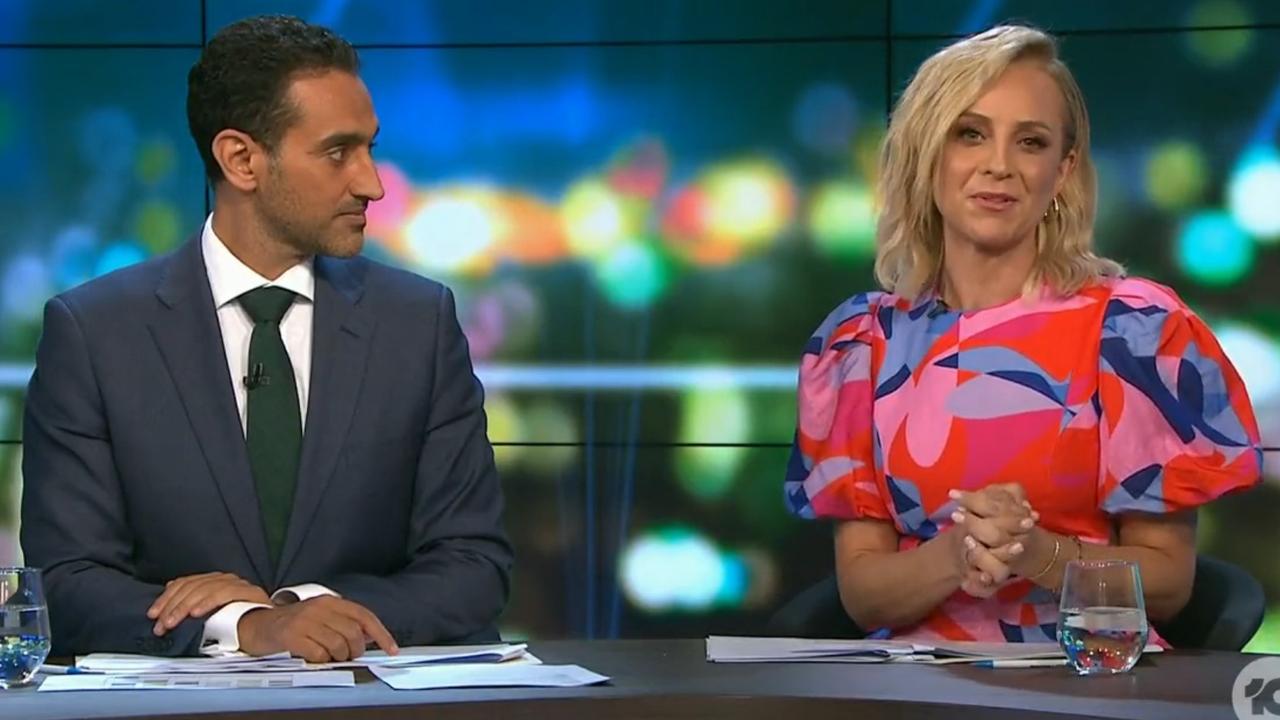Why we care about Carrie Bickmore’s Hit Network salary
Carrie Bickmore made headlines this week for her “huge” radio salary - and the frenzied attention exposes a big problem in Australia.

Carrie Bickmore made headlines again this week – not for her work as co-host of Ten’s The Project, nor her decision to take her family on a long-term trip to the UK, or her continued efforts to raise brain cancer awareness.
Instead, it was for the allegedly “HUGE” salary she makes co-hosting her national afternoon Hit Network show, Carrie and Tommy, with comedian Tommy Little.
On Monday, a source told The Daily Mail that Bickmore – whose income has long been a source of public fascination (and in some cases, outrage) – is earning, God forbid, “at least” $1 million per year, “which is about three times the usual salary for an afternoon or nights radio host”.
Which begs the question: why do we care so much?
Speaking to news.com.au about why it is that the salaries of women like Bickmore can dominate the news cycle – and public conversation – for weeks while the pay of a man garners far less attention, She’s on the Money founder and host Victoria Devine said “it all comes down to conditioning”.
“We’re very used to seeing well-paid men in positions of power, but when we see a woman in a high-flying role who is involved in decision making and taking home an impressive pay packet, we’re often taken aback as it’s not what we understand to be ‘normal’,” Devine explained.
“We question her ethics, what she sacrificed to climb those ranks, and we show faux concern for her ‘inevitable’ lack of a home life. Why don’t we level the same critique at men?”

She added that “while it’s easy to feel a little guilty about the past judgments you may have made on a successful woman, it’s important to know this isn’t the fault of you or any individual, but the fault of the patriarchal society we live in”.
RMIT University Senior Lecturer in Economics, Dr Leonora Risse, told news.com.au that “traditional social expectations would prescribe that leadership, authority and power – and therefore high salaries, wealth and money matters more broadly – is the general domain of men”.
“When women start to step into those roles in society, and then also show capacity to earn high salaries, it can be unsettling, or seen as a novelty, or seen as a threat to men’s traditional stake and dominance in this domain,” she said.
“And as a consequence, it becomes more a talking point and a matter of contention.”
Take, for example, the furore that erupted when Bickmore’s The Project co-host Lisa Wilkinson exited the Nine Network over a pay dispute in 2017.
At the time, the veteran journalist was labelled “greedy” for quitting over what she described in her 2021 memoir as a pay gap between she and her Today co-host Karl Stefanovic that was “so off the charts that no-one would have believed it”.

And while Australia's infamous tall poppy syndrome “potentially” played a part in the headlines generated by Wilkinson’s move – and now our obsession with Bickmore’s salary – Ladies Talk Money co-creator and Pure Finance’s director of strategy, Chandel Brandimarti, said it’s more to do with “good old fashioned misogyny rearing its annoying head”.
“If people are ‘upset’ to learn that Carrie Bickmore earns $1 million a year for her radio gig, does it upset them more to learn that Kyle Sandilands earns $5 million?” Brandimarti told news.com.au.
“And if it doesn’t, why might that be?”
Devine agreed, explaining that “there’s an element of internalised misogyny at play when we find ourselves feeling uncomfortable seeing women earning significant sums of money, but then have no problem when we see a man doing the same”.
When news of Waleed Aly’s new “seven-figure, multi-year” deal with Ten broke – a man who, on The Project, does much the same job as Bickmore – we barely batted an eyelid.
“This has a lot to do with how we are taught from early age that there are only so many seats at the table for women,” Devine said.
“It’s an idea called the scarcity mindset, where we’re told and believe there are only so many jobs and opportunities for success out there, so instead of being elated about another female’s achievement, we find ourselves feeling jealous and inadequate in ourselves. While it’s ingrained in us, it’s really important to fight against this urge and know that another woman’s success is not our failure.”
She also made that point that women still earn less than men: “The almost 14 per cent gender pay gap in Australia is very much a real thing (the disparity increasing for women of colour, non-binary people, and women living with disability).”
“Less women at the top means it’s not the standard, we don’t see it as frequently and so we don’t perceive it to be ‘normal’,” Devine said.

Asked how we normalise conversations around women and money, Dr Risse said it’s “about breaking down the gender patterned stereotypes that associate men with power, control, wealth and money”.
“We need to call out these stereotypes where they occur, in the media, in business, in politics, in all aspects of everyday life,” she explained.
“And it can’t be up to women to push for this change – accountability lies with everyone, especially leaders and people in positions of influence.”
Brandimarti added that well as “pushing through the discomfort and understanding that we have everything to gain” from talking more about money, “we would encourage everyone to really try and think critically when it comes to topics like this”.
“And we say everyone because we can all have these internalised biases – both conscious and unconscious – on a whole range of issues,” she said.
“And it’s women who are, literally and figuratively, paying the price.”






